Trip Overview
Embark on an enriching journey through Nepal, a land where ancient pagodas, royal palaces, and serene Buddhist stupas blend seamlessly with the majestic Himalayas. This educational tour is meticulously crafted to offer a deep dive into Nepal’s rich tapestry of culture, nature, and history, making it an ideal expedition for those eager to learn and explore.
Kathmandu Valley: Begin your adventure in the heart of Nepal, Kathmandu Valley, a treasure trove of world heritage sites, bustling markets, and the vibrant Newari culture. Known as the city of temples, Kathmandu is a living museum of ancient architecture and traditions, waiting to be explored.
Pokhara Valley: Journey west to Pokhara Valley, nestled at an elevation of 800m yet boasting views of towering peaks over 8000m. This unique geographical marvel is enriched with swift rivers, lush vegetation, and sparkling lakes, offering a stunning backdrop that is arguably one of the most dramatic on the planet.
Lumbini: The pilgrimage to Lumbini, the birthplace of Lord Buddha, offers a serene and spiritual experience. Explore the sacred Mayadevi Temple, the tranquil water pond, and the eternal flame that burns in homage to the founder of Buddhism. Lumbini is also home to numerous temples built in various architectural styles, each representing different countries and their homage to Buddha.
Chitwan National Park: The adventure continues with a visit to Chitwan National Park, renowned for its diverse ecosystem and thrilling jungle safari experiences. Traverse the jungle in jeeps to catch a glimpse of the exotic wildlife, including the one-horned rhinos, deer, Bengal tigers, and monkeys, offering a perfect blend of education and excitement.
Tour Highlight
- Discover the ancient wonders and the vibrant Newari culture of the Kathmandu and Pokhara City Tour.
- Experience beautiful panoramic views of the Himalayas from Sarangkot Hill, presenting a breathtaking sunrise or sunset vista.
- Explore the birthplace of Lord Buddha in Lumbini, a spiritual journey into the origins of Buddhism.
- Embark on a Jungle Safari and walk in Chitwan National Park, an unforgettable adventure into Nepal’s wild heart.
Trip Facts
Trip Itinerary Expand All
Arrival at Tribhuvan International Airport, Kathmandu
- Morning/Afternoon: Arrival and warm reception at the airport. Transfer to your hotel with an introductory briefing about Nepal and the upcoming tour details.
- Evening: Leisure time to explore the vicinity of your hotel or relax. A welcome dinner at a traditional Nepali restaurant, offering an introduction to Nepali cuisine and cultural performances.
Explore Kathmandu City
- Morning: Visit the historic Bhaktapur Royal Palace, where you’ll explore ancient courtyards, temples, and the famous 55 Window Palace. The area is a UNESCO World Heritage site, reflecting the city’s rich history and culture.
- Afternoon: Tour the sacred Pashupatinath Temple and Swayambhunath Stupa (Monkey Temple), providing insights into Hindu and Buddhist traditions, respectively. These sites are not only spiritual centers but also offer a glimpse into architectural marvels.
- Evening: Return to the hotel. Free time followed by dinner. Discussion on the day’s experiences and what to expect in Pokhara.
Drive to Pokhara City
- Early Morning: Depart for Pokhara after breakfast, enjoying scenic views along the Prithvi Highway. Rest stops at riverside cafes for tea and lunch.
- Afternoon: Arrive in Pokhara. Check into the hotel and rest.
- Evening: Brief exploration of Lakeside, Pokhara. Dinner at a local restaurant with views of Phewa Lake.
Explore Pokhara City
- Early Morning: Drive to Sarangkot for a breathtaking sunrise view over the Himalayas. Return to the hotel for breakfast.
- Late Morning: Visit the Gurkha Museum, dedicated to the renowned Gurkha soldiers, and the International Mountain Museum to learn about mountaineering history.
- Afternoon: Explore the Davis Fall, Gupteshwor Cave, and the Peace Pagoda. Each site offers unique natural and cultural insights.
- Evening: Free time for personal exploration or relaxation. Dinner at the hotel.
Drive to Lumbini City
- Morning: After breakfast, depart for Lumbini. The journey provides an opportunity to witness the diverse landscapes and rural life of Nepal.
- Afternoon: Arrive in Lumbini and check into the hotel. Rest and lunch.
- Evening: Brief visit to the Lumbini Garden area for an introductory walk. Dinner at the hotel.
Explore Lumbini
- Morning: Full day dedicated to exploring Lumbini’s sacred sites, including the Mayadevi Temple (the birthplace of Lord Buddha), the Sacred Garden, and the Eternal Flame.
- Afternoon: Visit various monasteries built by different countries, showcasing architectural diversity and cultural unity.
- Evening: Reflection session on the day’s experiences. Dinner at the hotel.
Drive to Chitwan
- Morning: Depart for Chitwan National Park after breakfast. The journey introduces you to the Terai region of Nepal, known for its biodiversity.
- Afternoon: Arrive at Chitwan and check into the resort. Lunch followed by a briefing on the park’s conservation efforts and the activities planned.
- Evening: Enjoy a sunset view over the Rapti River, followed by a cultural program showcasing Tharu dance performances. Dinner at the resort.
Visit Chitwan National Park
- Early Morning: Begin the day with bird watching, followed by breakfast.
- Morning to Afternoon: Embark on a jungle safari, either on an elephant’s back or in a jeep, to see wildlife like the one-horned rhino, Bengal tiger, and various bird species.
- Late Afternoon: Visit a local Tharu village to learn about their culture and lifestyle.
- Evening: Discussion on the day’s sightings and conservation efforts. Dinner at the resort.
Drive back to Kathmandu
- Morning: After breakfast, prepare for the journey back to Kathmandu.
- Afternoon: Arrive in Kathmandu and check into the hotel. Rest or last-minute shopping.
- Evening: Farewell dinner in a cultural restaurant, celebrating the trip’s highlights with Nepali folk music and dance.
Trip Conclude
- Morning: Breakfast at the hotel. Depending on your flight schedule, transfer to the airport for departure or engage in any final activities or shopping in Kathmandu.
Join the Departure
Guest Reviews
We highly recommend Broad Adventures they provided exceptional guidance on our Everest Base Camp trek. Our guide’s Gynau’s professionalism,...
Read More...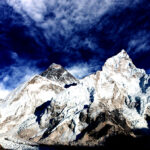
David Neufeld
CanadaIf you are looking for a tour to see the Mt Everest base camp look no further. I have...
Read More...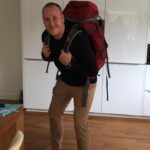
Tim Troost
AustraliaI was looking at an exotic trek adventure. After looking for a bunch of places to go I thought...
Read More...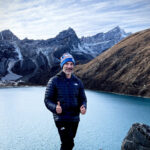
Keith B.
USAKeshab was our most gracious and amiable guide in Kathmandu and to Everest basecamp. My wife accompanied me on...
Read More...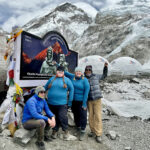
Ken Byers , Nevada
USAMy son and I went for trekking in Nepal in 2009, and we were lucky to have Keshab Khanal...
Read More...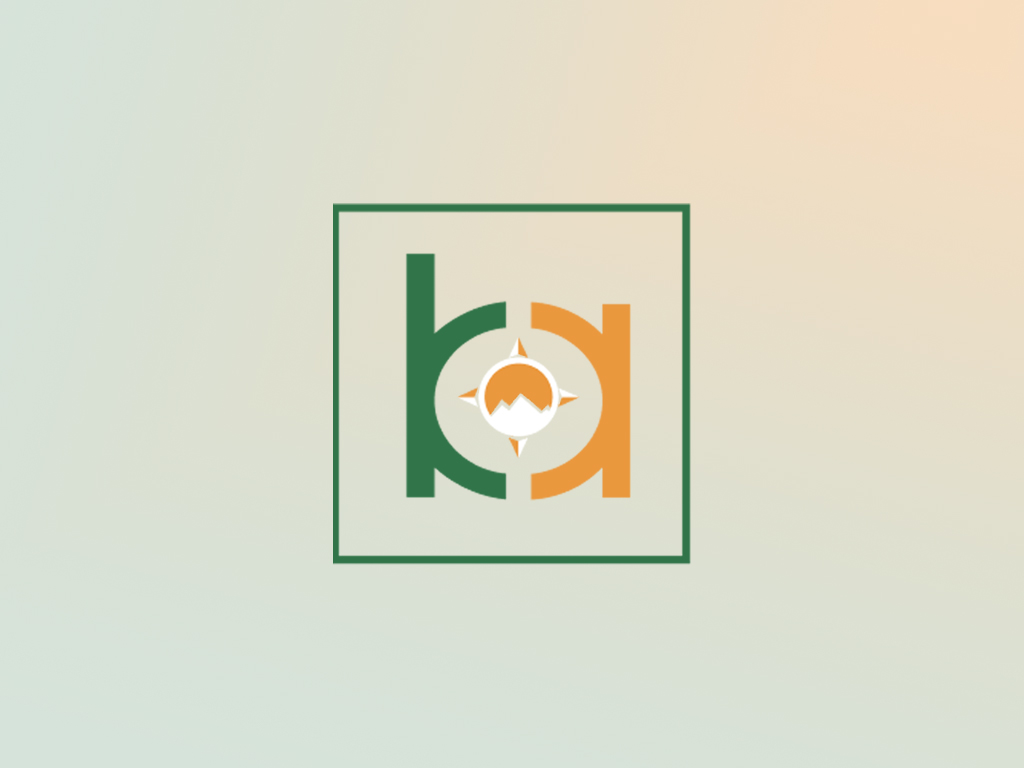
Dr. Raphael Hemmendinger
Jerusalem , IsraelIn 2005 I came to Nepal for the second time, this time whith a very specific queste. I wanted...
Read More...
Richard Rijken
Amsterdam , NetherlandsI was always willing to go to the Himalayas and explore some of the beauties hidden in the sacred...
Read More...
John Peter
Manchester , United KingdomNamaste! This was my first time to Nepal, and I had an amazing time on my trek. From the...
Read More...
David Patrician
Hamburg , GermanyI was on trekking from 24.10.10 to 5.11.10 in the half part of Annapurna circuit from Bhulbhule to Jomsom....
Read More...
Vaya Bairaba
Athens , GreeceGet Trip PDF file
Why travel with
Broad Adventures
Since 2010, we have curated unique itineraries that offer once-in-a-lifetime experiences, ensuring every trip is filled with joy and adventure. Our focus on the fun factor and the right amount of challenge allows you to achieve a profound sense of personal accomplishment, all while enjoying the camaraderie of like-minded travelers.
Small-Group Adventures
Join an intimate group of like-minded travelers who share your passion for discovering the world's wonders safely and confidently. Our small group settings foster a deeper connection with your fellow explorers and the incredible destinations we visit.
Expert Local Guides
We exclusively employ local guides and porters for their unparalleled knowledge and expertise. Their insights and firsthand experiences enrich your journey, giving you a deeper understanding and appreciation of the local culture, history, and environment.
Responsible for Tourism
Your safety is our utmost priority. Our dedicated team of trained professionals ensures the highest standards of care, including providing fresh and hygienic meals, comprehensive First Aid supplies, and round-the-clock communication services. We are committed to responsible tourism practices, emphasizing the importance of sustainable and ethical travel.
Health and Saftey
Promoting responsible tourism is essential, as it calls for a collective effort from everyone involved in the industry. By prioritizing health and safety, we ensure that each journey is not only enjoyable but also respectful of the destinations and communities we visit.
How can we help you?
- City Tour Equipment
- City Tour Season
- Climbing Equipment
- Climbing Season
- General Questions
- Guide and Staffs
- Nepal Overview
- Tipping
- Transportations
- Trekking Equipment
- Trekking Season
- VISA info
- Weather and Temperature
Do you provide any equipment for the trek?
Broad Adventure provides you a basic equipment like a Sleeping Bag and a down Jacket, for the tea-house trek. And for the climbing trip, we provide the basic equipment. For a camping trek check it once including the section.
What is the time zone of Nepal?
NPT (UTC+05:45)
What cultural attractions can I explore in Kathmandu?
Kathmandu is home to historical sites like Durbar Square, Swayambhunath (Monkey Temple), and Pashupatinath Temple. These landmarks showcase Nepal’s rich cultural and religious heritage, providing visitors with a deep insight into the country’s history.
What are the must-visit cities in Nepal?
Kathmandu, Pokhara, Bhaktapur, and Patan are popular cities offering rich cultural experiences. Each city has its own unique charm, historical sites, and vibrant local markets.
Do you provide any equipment for the trek?
Broad Adventure provides you a basic equipment like a Sleeping Bag and a down Jacket, for the tea-house trek. And for the climbing trip, we provide the basic equipment. For a camping trek check it once including the section.
Do I need to tip the guide and porters? What is the standard tip?
Tips is expected by your team members and normally the standard is 10% of your total trip cost.
What is the climbing season in Nepal?
The main climbing seasons are spring (April to May) and autumn (September to November). During these times, the weather is more stable, providing safer and more favorable conditions for climbing expeditions.
Are there other mountains in Nepal suitable for climbing?
Yes, Nepal is home to numerous trekking peaks and mountains suitable for climbing, such as Island Peak, Mera Peak, and Lobuche East. These peaks offer a challenging yet rewarding experience for climbers of various skill levels.
Can I climb Mount Everest as a tourist?
Climbing Mount Everest requires significant preparation, experience, and permits. Most climbers join organized expeditions with experienced guides. Climbing Everest is a serious undertaking that demands physical fitness, technical skills, and a high level of commitment.
Do I need to tip the guide and porters? What is the standard tip?
Tips is expected by your team members and normally the standard is 10% of your total trip cost.
What is the voltage and plug type used in Nepal?
The standard voltage is 230V, and the plug type is the Europlug (Type C) and the British-style plug (Type D). It’s advisable to bring adapters if necessary.
What is the voltage and plug type used in Nepal?
The standard voltage is 230V, and the plug type is the Europlug (Type C) and the British-style plug (Type D). It’s advisable to bring adapters if necessary.
Is it necessary to get travel insurance for Nepal?
Yes, travel insurance is highly recommended, especially for trekking and adventure activities. Ensure that your insurance covers medical emergencies, evacuation, and trip cancellations.
What languages are spoken in Nepal?
The official language is Nepali, but English is widely understood in tourist areas. Additionally, various ethnic groups have their own languages.
What is the currency used in Nepal, and are credit cards widely accepted?
The official currency is the Nepalese Rupee (NPR). While major cities and tourist areas accept credit cards, it’s advisable to carry cash in remote areas. ATMs are available in urban centers.
How can I get around within cities in Nepal?
Transportation options include taxis, rickshaws, and local buses. Walking is also a great way to explore the cities, especially in the old quarters. Many cities have well-preserved historic areas, and navigating them on foot allows for a more immersive experience.
What cultural attractions can I explore in Kathmandu?
Kathmandu is home to historical sites like Durbar Square, Swayambhunath (Monkey Temple), and Pashupatinath Temple. These landmarks showcase Nepal’s rich cultural and religious heritage, providing visitors with a deep insight into the country’s history.
Can I climb Mount Everest as a tourist?
Climbing Mount Everest requires significant preparation, experience, and permits. Most climbers join organized expeditions with experienced guides. Climbing Everest is a serious undertaking that demands physical fitness, technical skills, and a high level of commitment.
Are permits required for trekking in Nepal?
Yes, trekking permits are required for most trekking regions. The type of permit depends on the specific trekking area. It’s important to obtain the necessary permits from the respective authorities to support local conservation and management efforts.
When is the best season for treks in Nepal?
From March to mid-June and September to December is the best season for treks.
What is the fitness required for the treks?
Generally, to trek in Nepal we should have good physical and health conditions. And also able to walk 4- 7 hours in day at a high altitude with your little backpack.
Do you pick me up at the Airport upon my arrival?
Yes, our airport representative welcomes you at the airport and transfers you to the hotel in a private tourist vehicle.
Does my guide/porter speak English?
They speak English. All the guides are professional and due to their professionalism, they speak good English. The guide’s English is enough to explain the local culture, activities, and religions.
Are the treks and tours secured? What about the security?
Providing security to our clients is our principal. The government-licensed holder guides and other crew members are carefully assigned for your trip. Even though, would like to counsel you to take care of your equipment, and bags. If you doing a tea-house trek your accommodation is in a local guesthouse, where you have to be a precaution yourself at all times. And if you are on a camping trek always keep your bags inside the tent and while at nighttime please keep your bag in the middle of the tent. The camping leader assigns a Sherpa as a guard throughout the nighttime.
What sort of ground transportation do you use?
Normally we assign a car for up to 2 people and a Jeep for up to 5 people and then a bus for up to 14 PAX and Coster and Sutlej Bus depending on group size. There are some trekking routes, which are dirt roads for them we assign 4WD Jeeps. It also depends on what services you opt for.
Are the staff insured by your company?
Yes, all of the staff and crew members are insured.
Should I need to join the group?
Joining a group depends on your booking and the option that you choose. If you have booked for Private Trip then obviously you will not join. Otherwise, normally the same trip departs on the same day then the group will join.
Do you arrange a private trip?
Yes, of course, we will arrange a private tour.
How big is a group size?
We will try to arrange a small group of willing people, which immortalize the treks. Normally we encompass 12 -16 people in a group. (This is not to apply to those who want to do a Private Trip, no minimum and maximum for them.)
Is the drinking water okay? Or do I need to use tablets?
For drinking water you can buy bottled water and purified mineral water on tea-house treks and city tours. And in the camping trek, the camping cook provides you with boiled water. For some cases of remote area trekking it would be better to have some purification tablets that you can buy in Kathmandu.
What are the accommodations and meals like?
All the meals that you provided are hygienic and fresh. While you are on a camping trek you get meals prepared by a professional camping cook. And if you are doing a tea-house trek you will get the main course as like in the cities. For accommodation on the camping trek, you will have a tent with good-quality mattresses and a sleeping bag. And if you are on a tea-house trek you will normal twin-sharing room with basic facilities with a warm mattress and blanket, and also we provide a sleeping bag if you need it.
Is the shower facility during the tour/trek?
Yes, you can have a shower during the trek. In the camping trek, you will get a shower in a shower tent which is provided 3-4 times in the whole trek, depending on the duration of the trek. And in a tea-house trek, we will provide you attached room where possible and for the rest of town, you will pay for a shower.
Do you provide any equipment for the trek?
Broad Adventure provides you a basic equipment like a Sleeping Bag and a down Jacket, for the tea-house trek. And for the climbing trip, we provide the basic equipment. For a camping trek check it once including the section.
Is there any possibility of communicating in my hometown?
Yes, you can. In the Everest and Annapurna regions, you can connect via Phone, or Internet both available in most of the town and, in some remote routes, you may need to use a satellite phone that is carried by your trek guide or also get in the local town.
Can I charge the batteries of cameras, and phones?
Yes, you can charge your devices, but recommended you bring your plugs, and chargers and also do not leave unattended anything while charging in a lobby or somewhere in the trekking guesthouse. And if you are on a camping trek it’s quite hard to charge the phone so we advise you to bring a portable charge.
Are there any health precautions I should take before traveling to Nepal?
Vaccinations for diseases like typhoid, hepatitis, and tetanus are advisable. Altitude sickness prevention measures should be considered for high-altitude treks.
How can I find a reliable trekking guide in Nepal?
Reliable guides can be found through licensed trekking agencies, recommendations from fellow travelers, or by checking with the Nepal Tourism Board. Ensure that your guide has the necessary permits and is experienced in the chosen trekking region
Is hiring a local guide recommended for exploring Nepal?
Yes, hiring a local guide is highly recommended, especially for trekking and exploring remote areas. Guides provide valuable insights into the culture, history, and geography of the region, ensuring a safer and more enriching experience.
Is hiring a local guide recommended for exploring Nepal?
Yes, hiring a local guide is highly recommended, especially for trekking and exploring remote areas. Guides provide valuable insights into the culture, history, and geography of the region, ensuring a safer and more enriching experience.
Is Nepal a safe country for tourists?
Yes, Nepal is considered safe for tourists. However, like any travel destination, it’s essential to follow common-sense safety practices and stay updated on travel advisories. Local people are welcoming, and the country values its reputation as a safe and friendly destination.
What is the best time to visit Nepal?
The best time to visit Nepal is during the spring (March to May) and autumn (September to November) seasons when the weather is generally favorable for outdoor activities. During these periods, the skies are clear, and the temperatures are moderate.
What makes Nepal a popular tourist destination?
Nepal is renowned for its stunning Himalayan landscapes, rich cultural heritage, diverse wildlife, and warm hospitality. The country offers a unique blend of adventure, spirituality, and natural beauty.
What is the standard tip?
Tipping is subjective so it depends on your satisfaction. However, the standard is about 20% of the trip cost you can share with the staff.
Do I need to tip the guide and porters? What is the standard tip?
Tips is expected by your team members and normally the standard is 10% of your total trip cost.
Do you provide any equipment for the trek?
Broad Adventure provides you a basic equipment like a Sleeping Bag and a down Jacket, for the tea-house trek. And for the climbing trip, we provide the basic equipment. For a camping trek check it once including the section.
Are permits required for trekking in Nepal?
Yes, trekking permits are required for most trekking regions. The type of permit depends on the specific trekking area. It’s important to obtain the necessary permits from the respective authorities to support local conservation and management efforts.
Do I need a guide for trekking in Nepal?
While it’s not mandatory, hiring a local guide is highly recommended for safety, navigation, and cultural insights. Guides are familiar with the terrain, can provide valuable information about the region, and ensure a smoother trekking experience.
What are the most popular trekking destinations in Nepal?
The Everest Base Camp trek, Annapurna Circuit, Langtang Valley trek, and Manaslu Circuit are among the most popular trekking routes in Nepal. Each trek offers unique experiences, from breathtaking mountain views to encounters with diverse cultures.
When is the best season for treks in Nepal?
From March to mid-June and September to December is the best season for treks.
Do I need to tip the guide and porters? What is the standard tip?
Tips is expected by your team members and normally the standard is 10% of your total trip cost.
Can I extend my tourist visa to Nepal?
Yes, tourist visas can be extended at the Department of Immigration in Kathmandu or the Immigration Office in Pokhara. Extension fees and requirements vary, and it’s advisable to initiate the process a few days before the current visa expires.
What documents are required for a tourist visa on arrival?
Passport with at least six months validity, a completed visa application form (available at the airport), and two passport-sized photos are required. Additionally, visa fees must be paid in cash (USD or equivalent).
What are the types of visas available for tourists?
Tourist visas are available for duration ranging from 15 to 90 days. Extensions can be obtained within Nepal if needed. Other visa categories include business visas, student visas, and diplomatic visas, each with specific requirements.
How do I obtain a visa for Nepal?
Tourist visas for Nepal can be obtained upon arrival at Tribhuvan International Airport in Kathmandu or at various land entry points. Alternatively, you can apply for a visa at the Nepalese embassy or consulate in your home country before traveling.
What is the monsoon season in Nepal?
The monsoon season in Nepal runs from June to early September. During this time, the country receives heavy rainfall, particularly in the southern plains and the hilly regions. The monsoon brings lush green landscapes but can also cause landslides and flooding in some areas.
What is the time zone of Nepal?
NPT (UTC+05:45)

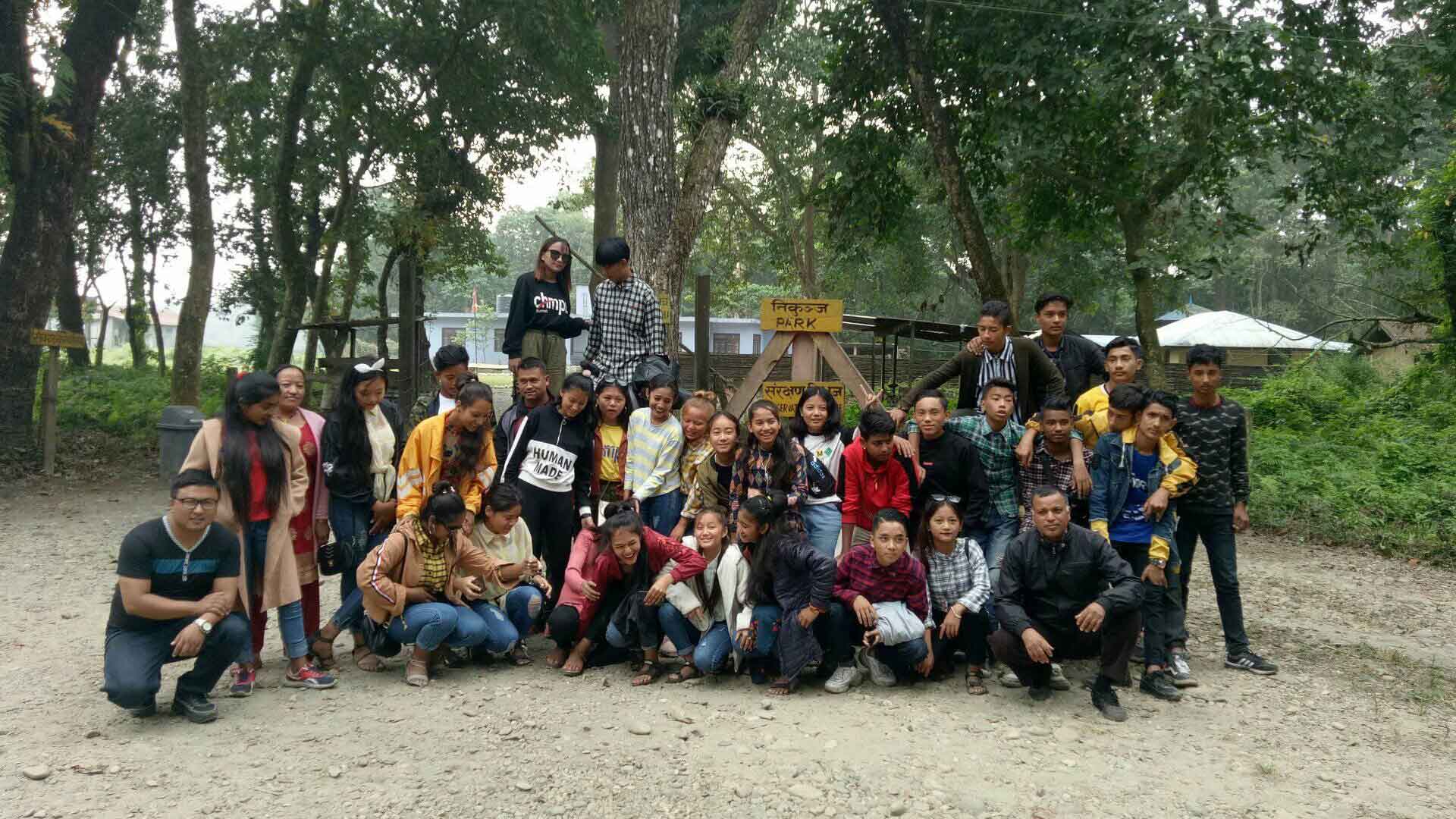
 Group Size: 5-15
Group Size: 5-15  Duration: 10 Days
Duration: 10 Days  Trip Grading: Easy
Trip Grading: Easy 




